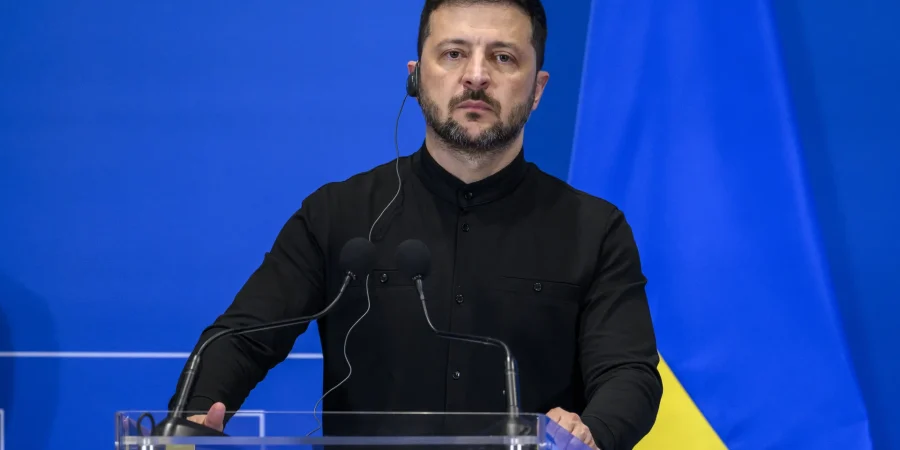Ukrainian President Volodymyr Zelensky has signed into law a controversial bill that critics say undermines the independence of the country’s anti-corruption agencies, sparking protests across major cities and triggering backlash from Western allies.
The new legislation places the National Anti-Corruption Bureau (Nabu) and the Specialised Anti-Corruption Prosecutor’s Office (Sapo) under the control of the prosecutor general Zelensky loyalist Ruslan Kravchenko who now has the authority to reassign or even shut down corruption investigations.
In his Wednesday address, Zelensky defended the move, stating that while Nabu and Sapo would continue to operate, they needed to be purged of “Russian influence.”
“There is no rational explanation for why criminal proceedings worth billions have been ‘hanging’ for years,” he said, adding that the prosecutor general would ensure “the inevitability of punishment” for wrongdoers.
However, the move has alarmed many both within and outside Ukraine. The day after the bill passed, Kyiv witnessed its largest anti-government protest since Russia’s full-scale invasion in 2022.
Demonstrations also broke out in Lviv, Dnipro, and Odesa, with protesters carrying signs reading “We chose Europe, not autocracy” and “My father did not die for this.”
Critics argue the legislation runs counter to the anti-corruption and pro-democracy reforms that followed the 2014 Euromaidan uprising and the ousting of pro-Russian president Viktor Yanukovych.
Western allies who helped establish Ukraine’s independent anti-corruption framework are also expressing concern. The EU, which has made anti-corruption a core requirement for Ukraine’s membership bid, warned the legislation could derail the country’s integration path.
“The dismantling of key safeguards protecting Nabu’s independence is a serious step back,” said European Commissioner for Enlargement Marta Kos.
“The EU provides significant financial assistance to Ukraine, conditional on progress in transparency, judicial reform, and democratic governance,” added EU spokesperson Guillaume Mercier.
Ukraine’s Deputy Prime Minister for European and Euro-Atlantic Integration, Taras Kachka, said he had reassured EU officials that “all core functions remain intact,” and there would be no compromise on anti-corruption.
Former Foreign Minister Dmytro Kuleba criticised the decision, calling it “a bad day for Ukraine” and suggesting the president faced a choice “to stand on the side of the people or not.”
Despite concerns, Western nations including the G7 have stopped short of threatening to withhold aid. Their ambassadors have requested dialogue with Ukraine’s leadership over the future of Nabu and Sapo, though any rollback in support appears unlikely as Ukraine remains locked in a war with Russia.
The law’s passage comes just days after the Security Service of Ukraine and the prosecutor general’s office conducted raids at Nabu, alleging Russian infiltration. For critics, however, the timing further signals an attempt to exert political control over institutions originally created to operate independently.
As Ukraine continues its EU accession journey, the pressure is mounting for the government to reassure both its citizens and international partners that its commitment to transparency remains intact.
Erizia Rubyjeana
Follow us on:


